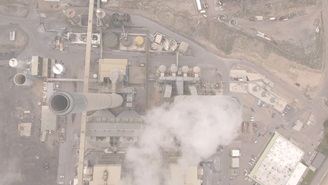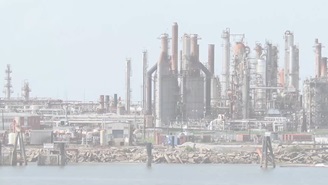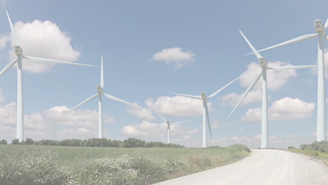ESG Ratings: A Rebuttal of Prevailing Criticisms
“No offence, but…”. This has become a common introduction to questions directed at environment, social and governance (ESG) rating providers and reflects a body of criticism centered on the premise that ESG research and ratings are fundamentally flawed.
Earth Day 2019 | The Water Scarcity Challenge
Earth Day 2019 is focused on protecting the species that make up our natural environment. With nearly three-quarters of the Earth’s surface covered in water, it’s a natural resource that we can’t take for granted. Human activity has irrevocably impacted this natural resource, affecting the quality and quantity of water available for consumption and for the natural habitat. In this article, we examine the role companies can play in addressing this water crisis and the potential opportunities for investors to support solutions.
Passive ESG Investing: Q4 2018 Sample Portfolio Analysis
The global equities market experienced substantial growth over the first quarter of 2019 as the FTSE All-World (AW) index returned 12.5%. But this growth spurt comes on the tail of a significant selloff during the preceding quarter; the total return of the FTSE AW over Q4 2018 sunk to -12.6%.[i]
Sustainalytics’ Carbon Risk Rating: Platypus Asset Management Live Test
Climate change is at the centre of public debate: from school strikes around the world to a recent landmark court ruling blocking a new coal mine in Australia on climate grounds. It is also increasingly becoming an investment risk and investors are looking to understand how this risk can affect their portfolios.
How will ESG investing fare in a volatile or bear market?
Much has been written about the rise of responsible investing and environment, social and governance (ESG) integration over the past decade. From 2014 to 2016, assets that systematically considered ESG factors in the investment process grew from USD 7.5 trillion to USD 10.4 trillion, with continued momentum over the past several years[i]. However, recent commitments to ESG integration (vs. values-based strategies) have yet to be tested by a significant market downturn. The spike in market volatility experienced in late 2018 has led some to question whether the consideration of ESG factors by investors will continue to flourish in a market environment characterized by investor fear and valuation corrections.
Self-Driving Technology: Risks and Opportunities through an ESG Lens
As technology and automobile companies race to bring autonomous vehicles (AVs) to the road, we consider the ESG risks and opportunities facing this disruptive technology. Estimates of when AVs will be fully automated vary (Figure 1); however, the consensus is that AVs are inevitable and different stages of automation will be slowly introduced.
Preparing for the Storm: Extreme Weather Events and the Chemicals Industry
In 2017, extreme weather events (i.e., hurricanes and flooding) resulted in USD 344 million in economic losses, globally.[i] Chemical companies are particularly exposed to this risk due to their concentration of assets in regions prone to extreme weather events, such as the Gulf Coast region of the United States. This region is home to several refining and petrochemical plants, and to more than half of the country’s downstream chemical production.[ii] With growing investor concern about the physical impacts of climate change and extreme weather events, we examine chemical companies’ preparedness to face this material issue. We also take a closer look at Arkema as a case study.
The Royal Commission Report: a new path for the Australian finance industry?
On Monday 4 February, the final report from the Royal Commission inquiry into misconduct in the Australian financial sector was published. It contained a scathing review of years of misconduct and of the failures by regulators to appropriately supervise and hold companies accountable. The report also provided 76 recommendations to fix these issues.
Water Risks in Extractive Industries
Water is an important natural input for mining, as extractive operations rely heavily on this natural resource to process the ore. However, the impacts of climate change (higher temperatures and more extreme, less predictable weather conditions) are affecting the availability of water resources globally.
Risk Exposure in a Changing Climate: The Story of PG&E
The destructive California wildfires in November 2018 once again focused investor attention on climate-change related risks. PG&E, the largest utility in the United States, has stated the fires were very likely caused by its equipment. The company has since announced it will file for bankruptcy protection at the end of January in what is being called the highest profile climate-change bankruptcy to date. The company’s expected liabilities from the devastating wildfires in 2017 and 2018 are estimated at over USD 30 billion and the company’s share price has dropped by over 90% since before the 2017 fire. It is currently unclear what would happen in the event of PG&E filing for bankruptcy protection, but state legislators have mentioned the possibility of breaking up the utility, selling off assets, or converting it to a publicly-owned company.
Searching for Solutions to Ocean Plastics
Over the past year, the public, regulators and investors have expressed growing concerns about the problem of ocean plastics. While some organizations have pledged to address the issue, our analysis of 4,575 companies in the sectors that generate most of the plastic waste on the planet reveals that less than 1% of these firms mention the phrase “ocean plastic” or “ocean health” in relevant corporate documents. This finding suggests a low level of strategic awareness about ocean plastics among companies exposed to the issue despite clear interest among consumers, law-makers and investors.
Palm Oil and Deforestation: a missed window of opportunity for the RSPO?
In August 2018, 90 institutional investors representing USD 6.7 trillion in assets sent a letter to the Roundtable on Sustainable Palm Oil (RSPO) expressing their concern over deforestation and the disconnect between leading corporate policy commitments and the RSPO standards.
Industry expert Jon Hale shares his views on attempts to discredit sustainable investing
In a new Medium article highly worth the read, Jon Hale, Global Head, Sustainable Investing Research at Morningstar, writes about recent misleading attacks on the credibility of ESG assessments and sustainable investing. He takes aim at a critical report from The American Council for Capital Formation, a Washington D.C. policy group financed by the National Association of Manufacturers, the fossil fuels industry and various other corporate lobbying organizations.
Beyond footprinting: How can investors manage carbon risks in their portfolio?
Institutional investors are facing increased pressure from customers, regulators and civil society to become more responsive to the threat of climate change. Over the last few years, there have been several developments that encourage investors to integrate risks associated with climate change into their decision-making (see timeline below). In addition to the impact of their investment, they need to address the effect climate change will have on their investment. This will manifest in both physical risk – through floods, draughts, extreme weather events, etc. – and carbon risk (also referred to as transition risk).


















